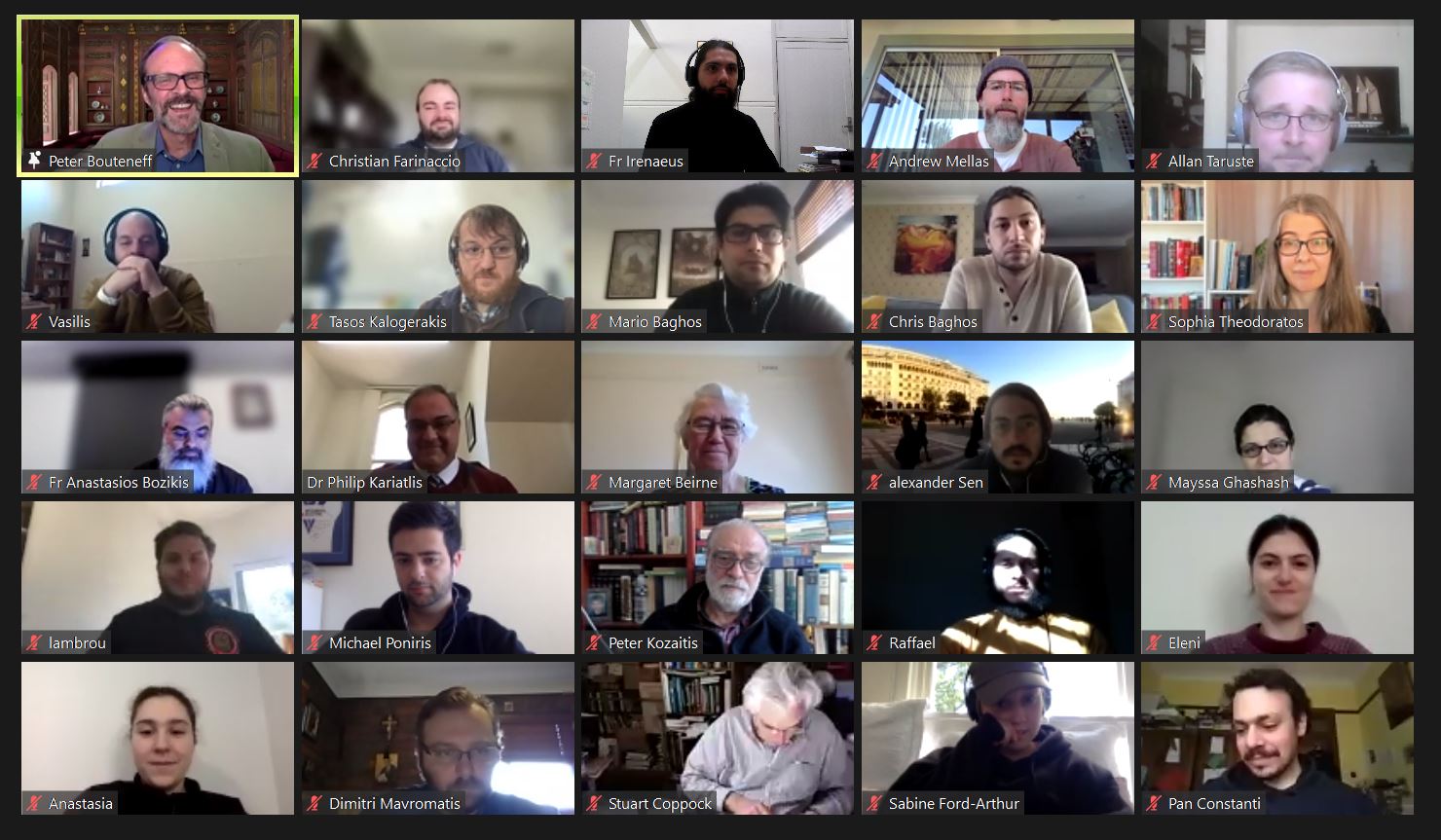- Home
- About us
- Students
- Courses
- Research
- Library
- News & Events
- Gallery
- Contact
- Our Blog
Latest News

‘Themes in Contemporary Theology’ E-Lecture Series
Aug 20, 2021
admin
‘Themes in Contemporary Theology’ E-Lecture Series
Earlier today St Andrew’s faculty and students welcomed via Zoom the distinguished Professor Peter Bouteneff of St Vladimir’s Orthodox Theological Seminary (Yonkers, New York), who spoke on the topic ‘The Doctrine of Ancestral Sin and its Implication for our Lives’ as part of the College’s series ‘Themes in Contemporary Theology.’
Prof. Bouteneff has authored countless articles on Orthodoxy, and edited and authored several important volumes, including—in relation to the latter—How to be a Sinner (SVS Press, 2018), Beginnings: Ancient Christian of the Biblical Creation (Baker, 2008), and Sweeter than Honey: Orthodox Thinking on Dogma and Truth (SVS Press, 2006), to name a few.
 Prof. Bouteneff was introduced by the College Sub-Dean, Assoc. Prof. Philip Kariatlis, before embarking on his fascinating talk that began with a preamble that there is a relationship between doctrines and life, and this can be discerned in relation to what is often called in the West ‘original sin,’ that is perhaps better rendered from an Orthodox point of view as ‘ancestral sin.’ Original sin has unfortunate connotations, and while the differences between Western and Eastern Christianity are often both exaggerated and underplayed, Prof. Bouteneff outlined an extreme version of ‘original sin’ to act as a relief from which to more sharply present the Orthodox perspective on this topic.
Prof. Bouteneff was introduced by the College Sub-Dean, Assoc. Prof. Philip Kariatlis, before embarking on his fascinating talk that began with a preamble that there is a relationship between doctrines and life, and this can be discerned in relation to what is often called in the West ‘original sin,’ that is perhaps better rendered from an Orthodox point of view as ‘ancestral sin.’ Original sin has unfortunate connotations, and while the differences between Western and Eastern Christianity are often both exaggerated and underplayed, Prof. Bouteneff outlined an extreme version of ‘original sin’ to act as a relief from which to more sharply present the Orthodox perspective on this topic.
So, in its extreme version—where in a mistranslation of Romans 5:12, everyone after Adam is born guilty of Adam’s own original or ancestral sin—this doctrine comprises a teaching that on a spiritual level leads to a perpetual state of guilt. This leads to a distorted vision of salvation, where Christ is seen as taking upon himself the punishment of Adam’s sin. It also leads to a distorted vision of grace: that we draw upon Christ’s merits legalistically and in a transactional manner. All of this deviates from Orthodox tradition.
However, because of the reality of the fall which has its origins at the outset of a mortal form of being, all human beings are indeed sinners. Thus, we are not guilty of the sin of Adam and Eve, but we identify with it: we repeat it all the time and we even inherit, to some degree, relational, contextual sins of the past (without inheriting Adam’s sin).
The emphasis however from an Orthodox point of view is on our own personal sins. However, we should not be neurotic about this and eaten up by it, but we know that God does not desire the death of a sinner; or for us to be miserable. Thus we must face and confess our sins that we might surrender them to the Lord Jesus Christ, and once they are acknowledged and confessed, we need to let go of them—and even though we will sin again—in this way shame and regret will not become definitive of our lives; but stepping stones to the release of our sins to the Lord who is endlessly loving and forgiving. A robust Q&A followed this wonderful presentation.
Upon his closing remarks, Prof. Bouteneff warmly thanked His Eminence Archbishop Makarios for his visionary leadership of the College.

.jpg)





.png)